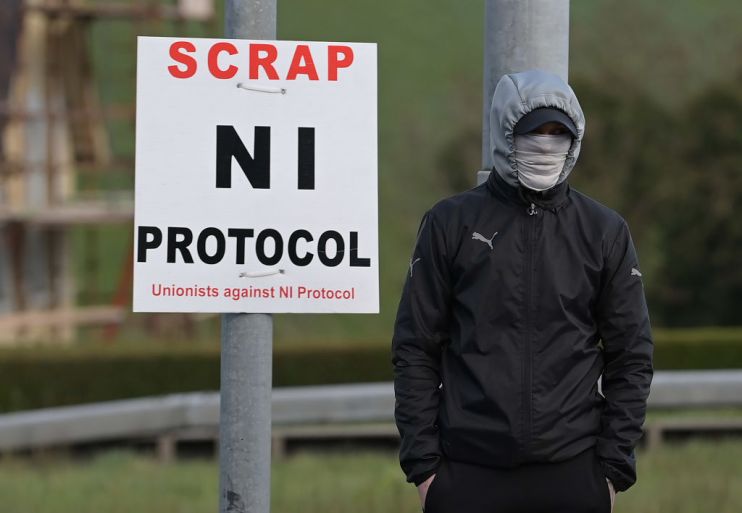Brexit analysis: If pig-headedness continues to prevail the EU and the UK risk an all-out trade war

Northern Ireland has been threatened with further chaos ahead of the first scheduled meeting of the UK/EU Partnership Council, the committee tasked with thrashing out the practical arrangements of the Brexit trade deal. Political posturing from both sides risks igniting a trade war that would benefit nobody and permanently damage the post-Brexit relationship.
The EU condemned the UK’s decision to further extend grace periods on British goods entering Northern Ireland, and vowed to take a firm stance if the UK continue to avoid the obligations of the protocol and renege on international commitments. Brexit minister David Frost demanded the EU revisit the Northern Ireland Protocol, claiming the current framework provides “limited discretion to operate the rules in a way which makes sense on the ground in Northern Ireland.” The Partnership Council meeting represents an opportunity to find a real solution, as long as pig-headedness doesn’t prevail.
The Northern Ireland Protocol, agreed on in 2019 and enacted in January 2021, established a border in the Northern Irish sea and kept Northern Ireland in the EU single market for goods, meaning all EU customs rules needed to be enforced for goods entering the country. The goal was to cause minimal disruption for Irish and Northern Irish communities. However, in reality, businesses have felt the pain of trade frictions as the increased paperwork and legal obligations have disrupted the flow of goods, leading to the UK’s decision to extend grace periods, and the EU’s resulting ire.
Technical details are still being hashed out, but what is needed is a stronger political commitment, and concessions, by both the UK and the EU to signal a willingness to compromise and a dedication to making some sort of agreement work. Instead we have seen vague accusations and name-calling, with the UK deriding the EU’s rigidity and lack of understanding, and the EU accusing the UK of putting ideology before pragmatism.
Worryingly, the EU’s co-chair of the Joint Committee Maroš Šefčovič has threatened retaliation should the UK refuse to change course, and an unnamed official has said EU patience is wearing thin and they will consider all tools available. Acting upon these threats could result in a disastrous trade war, and make the situation far worse for Ireland and Northern Ireland, going precisely against what they claim to be prioritising. Slinging around thinly veiled threats depict the EU, at best, as petty, as they continue to issue ultimatums that won’t be acted on. At worst, it paints them as reckless, chancing an all-out trade war to punish the UK for snubbing them.
The UK is not without blame either, undeniably failing to act upon what was promised and resorting to inflammatory rhetoric against the bloc that does nothing to improve their credibility. If there is to be any hope for a strong trading relationship between the powers, and for an outcome that makes anybody happy, some concessions will need to be made, and a more mature and balanced approach taken to continued negotiations.
So ahead of this week’s talk, and future ones, the name calling and bluffing needs to stop, and thoughts of a trade war pushed aside. The UK and the EU are allies and though tensions abound and methods differ, the end goal is the same: harmony and stability in Northern Ireland.
